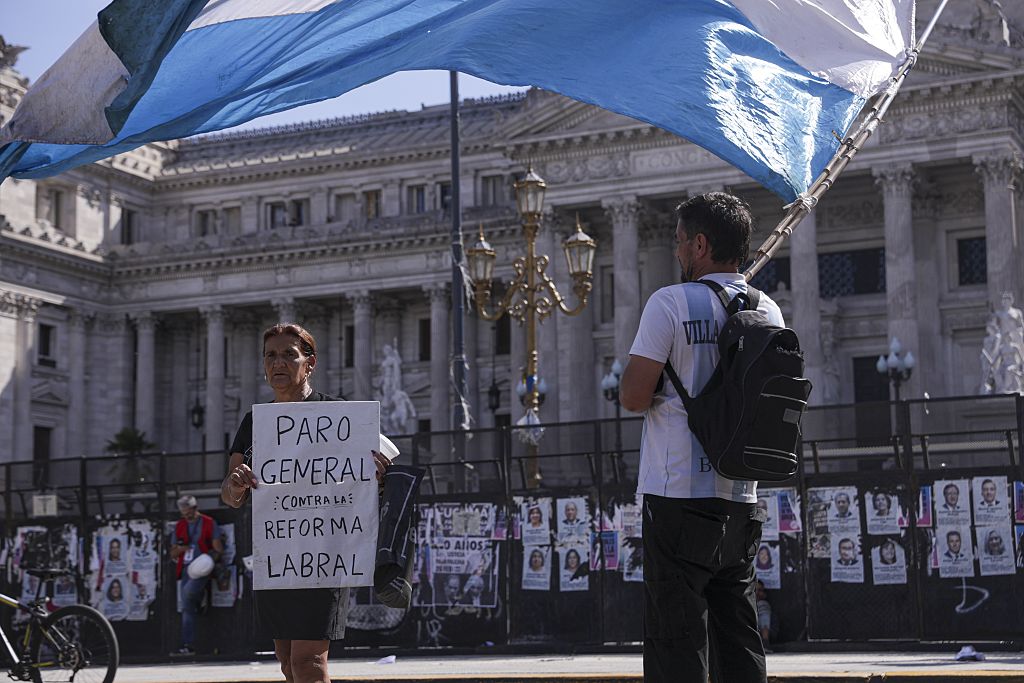Honduras Bound: Pact Paves Way for Zelaya's Return
Honduras Bound: Pact Paves Way for Zelaya's Return
Nearly two years after Honduran head of state Manuel Zelaya was forced into exile, a deal signed with current President Porfirio Lobo allows for the ousted leader's homecoming and the country's return to the OAS.
More than two years since Honduran leader Manuel Zelaya was forced into exile, an agreement signed over the weekend paves the way for him to return home and for Honduras to return to the fold of the Organization of American States. Zelaya met with current President Porfirio López on Sunday in Cartagena, Colombia, to ink the pact brokered by the host country and Venezuela. “I am pleased to come to sign a reconciliation agreement for the democracy of the Honduran people,” said the ex-leader, who was overthrown in June 2009 after signaling he intended to ignore a court order halting a constitutional referendum. “Return to Honduras without any fear because you will be treated with the respect due a former president,” Lobo told Zelaya in Cartagena.
Though Lobo won November 2009 elections by a wide margin, his government suffered from doubts over political legitimacy, given that the vote was held under the watch of a de facto government. With Honduras’ OAS membership suspended due to the coup, the crisis served as a wedge in the Americas; while countries such as Colombia, Panama, Peru, and the United States recognized Lobo’s administration, Brazil and Venezuela were among those to reject it.
But Sunday’s deal was the latest step that could wrap up a long political drama in the Central American country. From the time of his inauguration, Lobo sought to put the crisis behind him, granting amnesty to both Zelaya and military leaders linked to the overthrow, when the deposed president was forced from his home in his pajamas and into exile. Still, though a Honduran judicial tribunal approved Lobo’s amnesty in July 2010, Zelaya still faced corruption and fraud charges that prevented his return. The Honduran Supreme Court dismissed warrants for his arrest in late March and, on May 2, another judicial decision led to the annulment of criminal charges against him.
In the months following the coup, Zelaya attempted several returns to Honduras—from a blocked landing that left him circling in a plane over the Tegucigalpa airport to a brief sojourn across the border from Nicaragua to his stint as a refugee in the Brazilian Embassy. As he prepares for a less-contested homecoming, the Organization of American States has announced that the agreement signed in Colombia will pave the way for Honduras to rejoin to multilateral body. Moreover, the agreement grants Zelaya’s supporters in the National Popular Resistance Front the right to participate in Honduran politics.
While the latest events may help Honduras move on, Zelaya's overthrow came at no small cost and drew international condemnation. Honduras, a country where 65 percent of its 8.1 million people live in poverty, saw 200,000 jobs and $1.1 billion in aid evaporate in the wake of the coup. Battered by the global economic crisis, its economy shrank by 2.1 percent in 2009.
Learn more
- Text of the May 22 agreement signed in Cartagena by Lobo and Zelaya.
- AS/COA Online’s interactive timeline covering Zelaya’s overthrow through the November 2009 election of President Lobo.
- AS/COA Online Resource Guide to the coup and its aftermath.
- University of Pittsburgh’s JURIST blog offers coverage of legal complaints and proceedings related to the Honduran coup.







